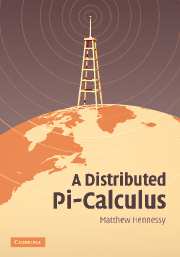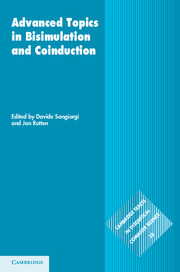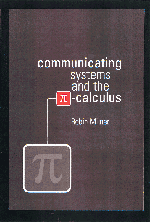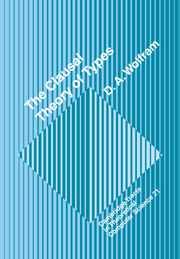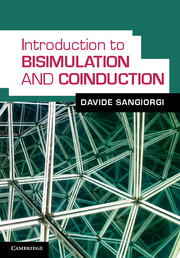The Pi-Calculus
Mobile systems, whose components communicate and change their structure, now pervade the informational world and the wider world of which it is a part. The science of mobile systems is as yet immature, however. This book presents the pi-calculus, a theory of mobile systems. The pi-calculus provides a conceptual framework for understanding mobility, and mathematical tools for expressing systems and reasoning about their behaviours. The book serves both as a reference for the theory and as an extended demonstration of how to use pi-calculus to describe systems and analyse their properties. It covers the basic theory of pi-calculus, typed pi-calculi, higher-order processes, the relationship between pi-calculus and lambda-calculus, and applications of pi-calculus to object-oriented design and programming. The book is written at the graduate level, assuming no prior acquaintance with the subject, and is intended for computer scientists interested in mobile systems.
- New theory of computing and communication
- Theory in depth and examples
- Collects together in book form material scattered throughout the research literature
Product details
October 2003Paperback
9780521543279
596 pages
246 × 189 × 31 mm
1.067kg
Available
Table of Contents
- Preface
- Introduction
- Part I. The p-Calculus:
- 1. Processes
- 2. Behavioural equivalence
- Part II. Variations of the p-Calculus:
- 3. Polyadicity and recursion
- 4. Behavioural equivalence, continued
- 5. Subcalculi
- Part III. Typed p-Calculi:
- 6. Foundations
- 7. Subtyping
- 8. Advanced type systems
- Part IV. Reasoning about Processes Using Types:
- 9. Groundwork
- 10. Behavioural effects of i/o types
- 11. Techniques for advanced type systems
- Part V. The Higher-Order Paradigm:
- 12. Higher-order p-calculus
- 13. Comparing first-order and higher-order calculi
- Part VI. Functions as Processes:
- 14. The l-calculus
- 15. Interpreting l-calculi
- 16. Interpreting typed l-calculi
- 17. Full abstraction
- 18. The local structure of the interpretations
- Part VII. Objects and p-Calculus:
- 19. Semantic definition
- 20. Applications
- List of notations
- Bibliography
- Index.


